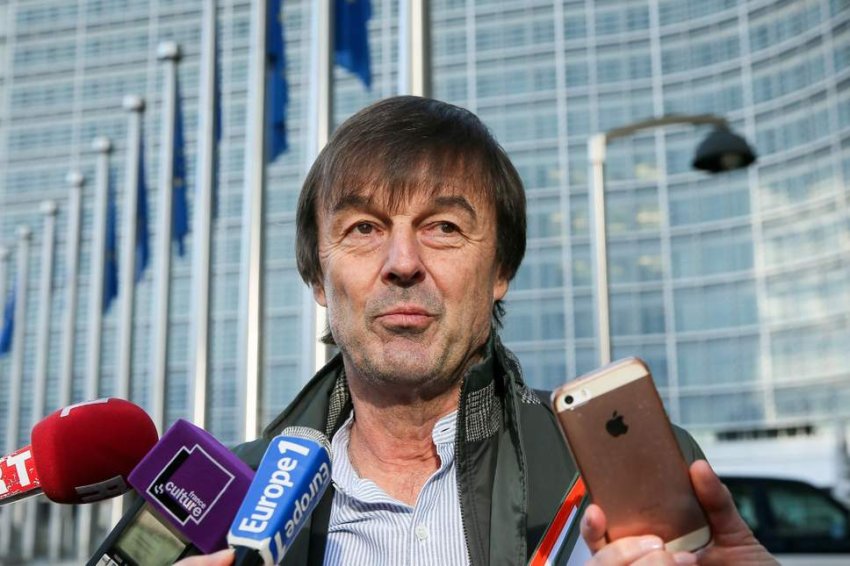
"I don't want to lie to myself anymore. I don't want to create the illusion that my presence in the government means we're up to the challenges, and so I've decided to quit the government." With those words, France's environment minister Nicolas Hulot announced during a live radio interview that, after 15 months in the role, he was parting company with President Emmanuel Macron.
Without saying "capitalism", Hulot blamed the market-led productivist logic behind the government's strategy, commenting: "We're going to a great effort to sustain the economic model responsible for all this climate chaos."
Hulot, who had a career in television, is one of France's best-known environmentalists. In 2011, he had a tilt at being the Greens presidential candidate, coming second in that party's pre-selection process.
He was courted by three previous presidents (Jacques Chirac, Nicolas Sarkozy and François Hollande) who all offered him the position of environment minister. Under France's political system, ministers are appointed directly by the president and it is quite common for leading civil society figures to be offered ministries to create an aura of consensus around a new government.
So it was quite a coup for Macron when Hulot accepted the role of Minister of Ecological and Inclusive Transition. It was designed to give the impression that the new administration was serious about climate change and other environmental issues.
Hulot was allowed a few symbolic and important wins, but it was always clear the new government would not go to the heart of the ecological crisis and attack the logic of capitalism. In particular, Hulot had to acquiesce to Macron on issues such as greenhouse gas reduction targets and nuclear power. There had been plenty of speculation that it might get too much for the new minister — but no suggestion he'd quit in a live interview without first telling the president.
Hulot expressed a strange but sincere naivety about the bind he'd got himself in. He criticised the gulf between the government's rhetoric and its deeds, the power of the industrial lobbies, and the short-term approach of the government. Despite blaming the "economic model" for the climate crisis, when asked why serious action was not being taken had no answer, seemingly unable to grasp the vice-like grip that the big corporations have over government, and still insisting on his friendship with Macron.
Nonetheless, Hulot's decision is a huge blow for Macron. His government has so far toughed-out a wave of strikes and protests against its plan for deregulation, cut-backs and privatisation, protected by a thumping majority in the National Assembly. But wonder boy Macron's approval rating has dropped from 65% straight after his election in May 2017 to 40% today.
For the social movements and unions fighting Macron's neoliberal program, this weakening of his executive could not come at a better time. Furthermore, it pushes the deadly seriousness of the ecological crisis and the fundamental inability of capitalism to resolve the problem to the centre of French politics.